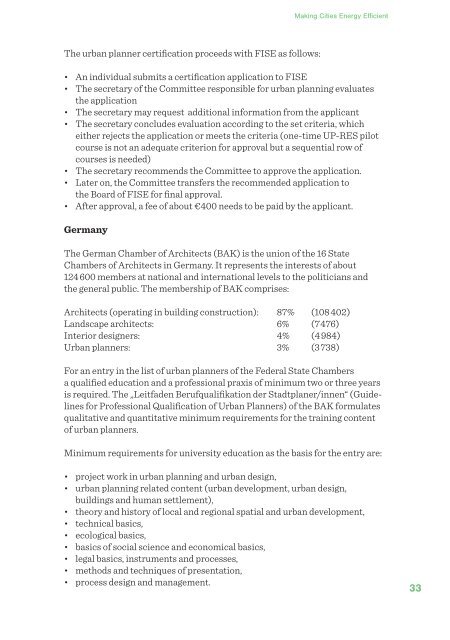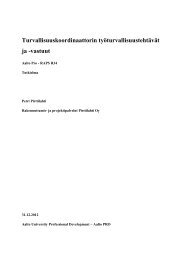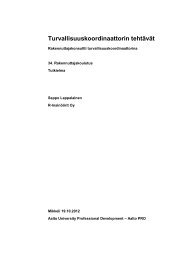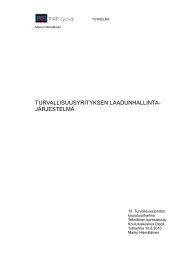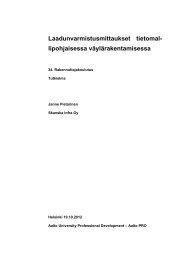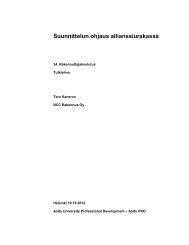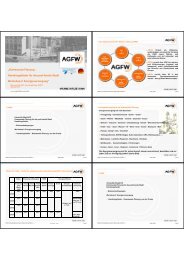Urban and Regional Planning adopting RES - Sitra
Urban and Regional Planning adopting RES - Sitra
Urban and Regional Planning adopting RES - Sitra
Create successful ePaper yourself
Turn your PDF publications into a flip-book with our unique Google optimized e-Paper software.
Making Cities Energy Efficient<br />
The urban planner certification proceeds with FISE as follows:<br />
• An individual submits a certification application to FISE<br />
• The secretary of the Committee responsible for urban planning evaluates<br />
the application<br />
• The secretary may request additional information from the applicant<br />
• The secretary concludes evaluation according to the set criteria, which<br />
either rejects the application or meets the criteria (one-time UP-<strong>RES</strong> pilot<br />
course is not an adequate criterion for approval but a sequential row of<br />
courses is needed)<br />
• The secretary recommends the Committee to approve the application.<br />
• Later on, the Committee transfers the recommended application to<br />
the Board of FISE for final approval.<br />
• After approval, a fee of about €400 needs to be paid by the applicant.<br />
Germany<br />
The German Chamber of Architects (BAK) is the union of the 16 State<br />
Chambers of Architects in Germany. It represents the interests of about<br />
124 600 members at national <strong>and</strong> international levels to the politicians <strong>and</strong><br />
the general public. The membership of BAK comprises:<br />
Architects (operating in building construction): 87% (108 402)<br />
L<strong>and</strong>scape architects: 6% (7476)<br />
Interior designers: 4% (4 984)<br />
<strong>Urban</strong> planners: 3% (3 738)<br />
For an entry in the list of urban planners of the Federal State Chambers<br />
a qualified education <strong>and</strong> a professional praxis of minimum two or three years<br />
is required. The „Leitfaden Berufqualifikation der Stadtplaner/innen“ (Guidelines<br />
for Professional Qualification of <strong>Urban</strong> Planners) of the BAK formulates<br />
qualitative <strong>and</strong> quantitative minimum requirements for the training content<br />
of urban planners.<br />
Minimum requirements for university education as the basis for the entry are:<br />
• project work in urban planning <strong>and</strong> urban design,<br />
• urban planning related content (urban development, urban design,<br />
buildings <strong>and</strong> human settlement),<br />
• theory <strong>and</strong> history of local <strong>and</strong> regional spatial <strong>and</strong> urban development,<br />
• technical basics,<br />
• ecological basics,<br />
• basics of social science <strong>and</strong> economical basics,<br />
• legal basics, instruments <strong>and</strong> processes,<br />
• methods <strong>and</strong> techniques of presentation,<br />
• process design <strong>and</strong> management.<br />
33


